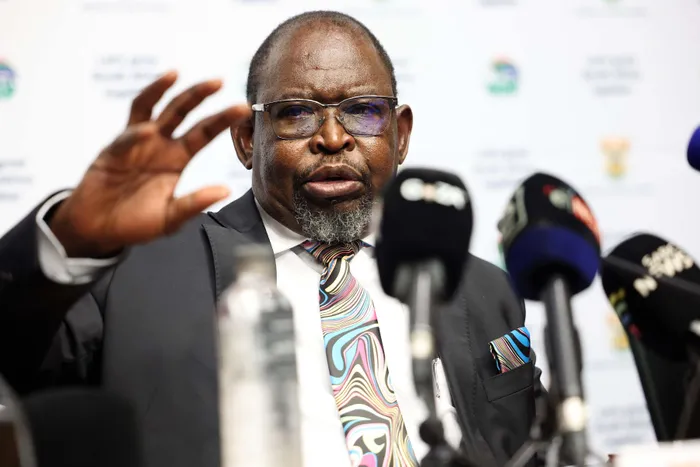
Finance Minister Enoch Godongwana rules out introducing wealth tax.
Image: GCIS
Finance Minister Enoch Godongwana has drawn a clear line in the sand: South Africa will not be introducing a wealth tax, the idea, he insists, is not just economically unwise — it’s potentially dangerous.
Godongwana will deliver his revised national budget on May 21. This is the third one this year.
This firm stance comes in response to mounting pressure from opposition parties, particularly the Economic Freedom Fighters (EFF) and the recently ascendant uMkhonto weSizwe (MK) party.
Both have positioned a wealth tax as a more equitable alternative to increasing value-added tax (VAT), which disproportionately affects the poor.
In a written response to a parliamentary question by MKP, Godongwana dismantled the proposal with pointed economic reasoning.
A wealth tax, he argued, risks triggering a chain reaction with far-reaching consequences.
According to the minister, taxing high-net-worth individuals on their assets.
Additionally, he cautioned that many people will decide to either relocate their wealth—and possibly themselves offshore or eat more.
The core pillars of South Africa's economic prosperity might be undermined by such actions, he continued. The danger isn't hypothetical.
According to data from the South African Revenue Service (SARS), there are roughly 2,850 people whose net worth exceeds R50 million.
This group collectively owns R245 billion in local assets and R150 billion offshore, and they pay roughly R7 billion in personal income tax each year, including returns from their overseas holdings.
“Should this group decide to relocate, it would impact negatively on capital and investment flows, as they often have business interests which generate employment and contribute towards economic growth and capital formation locally,” Godongwana said.
Asked whether he is considering corporate tax rates to generate additional revenue, Godongwana said Income tax is the most effective way to tax the wealthy, and it generates multiple times more revenue for the fiscus more efficiently and cost-effectively.
